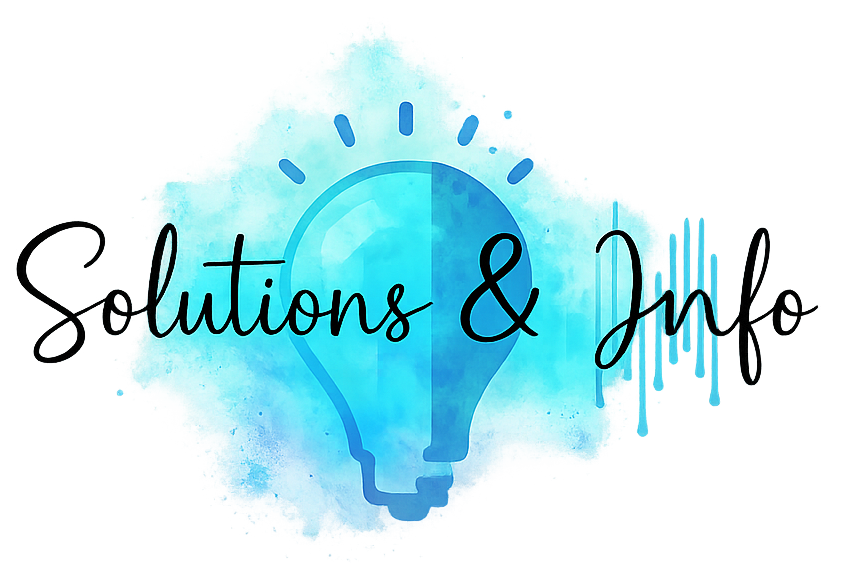Technology, in its essence, refers to the application of scientific knowledge for practical purposes. It encompasses tools, machines, techniques, and systems that help solve problems or perform specific functions. From the invention of the wheel to the development of smartphones, technology has been a driving force in shaping human civilization.
In today’s digital age, technology permeates every aspect of our lives. It influences how we communicate, work, learn, and entertain ourselves. The rapid advancement of technology has led to innovations such as artificial intelligence, virtual reality, and the Internet of Things, transforming industries and creating new opportunities.
However, with the benefits of technology come challenges. Issues like data privacy, cybersecurity threats, and digital addiction have emerged, necessitating a balanced and informed approach to technology use. Understanding technology’s role and impact is crucial for navigating the modern world effectively.
My Personal Journey with Technology
Born in 1987, my fascination with technology began at the age of 7 when I received my first handheld gaming device. The pixelated screen and simple controls sparked a curiosity that would grow over the years. As I progressed through school, I encountered various technological tools, from floppy disks to early versions of personal computers.
In my teenage years, the advent of the internet opened new horizons. I remember the excitement of creating my first email account and exploring the vast information available online. The evolution from dial-up connections to high-speed broadband transformed how I accessed and interacted with digital content.
As an adult, technology became integral to my professional and personal life. From using smartphones to manage daily tasks to leveraging cloud-based tools for collaboration, I witnessed firsthand how technology could enhance productivity and connectivity. Embracing new gadgets and applications became a continuous learning process, keeping me engaged and adaptable.
1. Embrace Continuous Learning
Technology is ever-evolving, making continuous learning essential. Staying updated with the latest trends and tools ensures you remain relevant and can leverage new opportunities. Online platforms like Coursera and Udemy offer courses on various technological topics, catering to different skill levels. Engaging in webinars, workshops, and tech communities can also provide valuable insights and networking opportunities.
2. Prioritize Cybersecurity
With increasing digital interactions, safeguarding personal information is paramount. Implementing strong, unique passwords for different accounts and enabling two-factor authentication can significantly enhance security. Regularly updating software and being cautious of phishing attempts are also crucial practices. Utilizing reputable antivirus programs and firewalls adds an extra layer of protection against cyber threats.
Reddit
Wikipedia
3. Manage Screen Time Effectively
Excessive screen time can lead to digital fatigue and impact mental well-being. Setting boundaries, such as designated tech-free hours or using apps that monitor usage, can help maintain a healthy balance. Engaging in offline activities, like reading or outdoor exercises, provides a refreshing break from screens and promotes overall wellness.
Verywell Mind
4. Leverage Cloud Storage Solutions
Cloud storage services like Google Drive, Dropbox, and OneDrive offer convenient ways to store and access files from anywhere. They facilitate seamless collaboration, automatic backups, and synchronization across devices. Adopting cloud solutions enhances efficiency and ensures data is secure and retrievable in case of device failures.
Comcast Business
5. Utilize Productivity Tools
Productivity applications, such as Trello for project management or Evernote for note-taking, streamline tasks and improve organization. Calendar apps with reminder features help in scheduling and time management. Exploring and integrating these tools into daily routines can lead to increased efficiency and goal attainment.
6. Stay Informed Through Reputable Sources
Keeping abreast of technological advancements requires accessing reliable information. Following reputable tech news outlets, subscribing to industry newsletters, and participating in forums like Stack Overflow can provide up-to-date knowledge and diverse perspectives. Engaging with expert analyses helps in making informed decisions regarding technology adoption and usage.
7. Encourage Responsible Tech Use in Communities
Promoting digital literacy and responsible technology use within communities fosters a more informed and secure environment. Organizing workshops, sharing resources, and mentoring others can empower individuals to navigate the digital landscape confidently. Collective efforts in understanding and utilizing technology responsibly contribute to societal advancement.
Expert Insights
-
Rajan Patel, VP of Search Experience at Google, emphasizes the importance of aligning technological initiatives with user needs and conducting thorough research to validate ideas. Business Insider
-
Forbes Technology Council members suggest that understanding both current and future technological needs is crucial for effective adoption and utilization. Forbes Carenet Health
-
Cybersecurity Expert Frank Abagnale warns about the increasing sophistication of cyber threats and advocates for the use of passkeys and regular account monitoring to enhance security. The US Sun
-
The Wall Street Journal recommends tools like OneTab to manage browser tabs efficiently, reducing clutter and improving focus during online activities. WSJ

